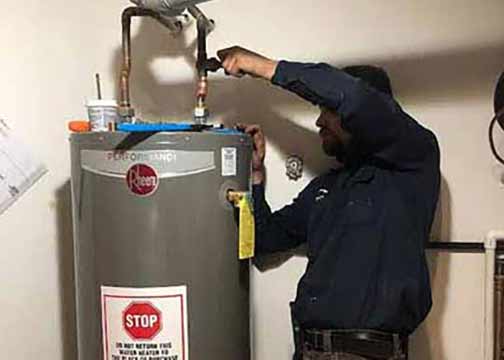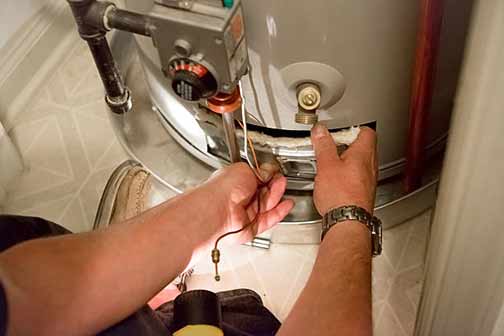The Critical Importance of Regular Water Heater Maintenance
Water heaters are indispensable in our daily lives, providing us with the comfort of hot water for bathing, cooking, and cleaning. Despite their importance, these appliances often go unnoticed until a problem arises. Regular maintenance is crucial not only to ensure optimal performance but also to extend the lifespan of the water heater and prevent unexpected breakdowns. By prioritizing regular maintenance, homeowners can avoid inconvenient and costly disruptions while maximizing the efficiency of their water heaters.
Understanding the Core Elements of Water Heater Maintenance
Water heater maintenance encompasses several essential tasks. These include inspecting the tank for leaks, checking the pressure relief valve, and flushing the tank to remove sediment buildup. Each of these tasks plays a vital role in maintaining the efficiency and longevity of the water heater. By grasping these core elements, homeowners can take proactive steps to keep their water heaters in prime condition, ensuring uninterrupted hot water supply.
The Impact of Sediment on Water Heater Efficiency and Performance
One of the most prevalent issues affecting water heaters is sediment buildup. Over time, minerals and debris from the water supply settle at the bottom of the tank. This sediment acts as an insulating layer between the water and the heating element, which reduces efficiency and increases energy costs. Regular flushing of the tank is essential to remove this sediment, ensuring that the water heater operates efficiently and effectively.
Preventing Expensive Repairs Through Routine Water Heater Maintenance
Routine maintenance can significantly reduce the risk of costly repairs by identifying potential issues before they escalate into major problems. For instance, a leaking tank can lead to water damage in your home, while a malfunctioning pressure relief valve can cause the tank to explode. By scheduling regular maintenance, homeowners can address these issues early, saving money and avoiding inconvenience.
Maximizing the Longevity of Your Water Heater
Water heaters have a finite lifespan, typically ranging from 8 to 12 years. However, regular maintenance can extend this lifespan, allowing homeowners to get the most out of their investment. By keeping the tank clean and ensuring all components are functioning properly, homeowners can avoid premature replacements and enjoy reliable hot water for years to come. This proactive approach not only saves money but also reduces the environmental impact of having to replace your water heater too often.

Enhancing Energy Efficiency and Lowering Utility Bills
Energy efficiency is a major concern for many homeowners, and water heaters are one of the largest energy consumers in the home. Regular maintenance helps improve energy efficiency by ensuring that the heating elements are working correctly and that the tank is free of sediment. This, in turn, can lead to lower utility bills and a reduced environmental footprint. By investing in maintenance, homeowners can enjoy both financial savings and contribute to a more sustainable future.
Ensuring Safety Through Regular Water Heater Inspections
Safety is another critical reason for regular water heater maintenance. Faulty water heaters can pose serious safety risks, such as carbon monoxide leaks or explosions. Regular inspections can help identify and address these risks, ensuring the safety of your home and family. By prioritizing safety, homeowners can have peace of mind knowing that their water heater is functioning safely and efficiently.
DIY Water Heater Maintenance Tips for Homeowners
While some aspects of water heater maintenance should be left to professionals, there are several tasks that homeowners can perform themselves. For example, regularly testing the pressure relief valve and inspecting the tank for leaks can help catch issues early. Additionally, homeowners can flush the tank annually to remove sediment buildup, improving performance and efficiency. By taking these simple steps, homeowners can play an active role in maintaining their water heaters.
Recognizing When to Call a Plumber for Water Heater Maintenance
Despite the potential for DIY maintenance, there are times when it is necessary to call a professional plumber. If you notice strange noises coming from the tank, a lack of hot water, or visible signs of damage, it is best to contact a plumber for a thorough inspection and repair of the water heater. Plumbers have the expertise and tools needed to diagnose and fix issues, ensuring the water heater is functioning safely and efficiently. By recognizing when professional assistance is needed, homeowners can prevent further damage and costly repairs.
The Financial Benefits of Investing in Regular Water Heater Maintenance
Investing in regular water heater maintenance can lead to significant financial benefits. By preventing costly repairs and extending the lifespan of the appliance, homeowners can save money in the long run. Additionally, improved energy efficiency can result in lower utility bills, making regular maintenance a cost-effective decision. By prioritizing maintenance, homeowners can enjoy both immediate and long-term financial savings.
To Conclude
In conclusion, regular water heater maintenance is essential for ensuring optimal performance, safety, and longevity. By understanding the basics of maintenance, addressing potential issues early, and investing in professional inspections when needed, homeowners can enjoy reliable hot water and peace of mind. With the financial and safety benefits that regular maintenance provides, it is a necessity that should not be overlooked. By prioritizing maintenance, homeowners can ensure the continued efficiency and reliability of their water heaters, ultimately enhancing the comfort and safety of their homes.


